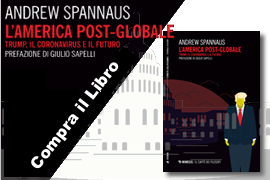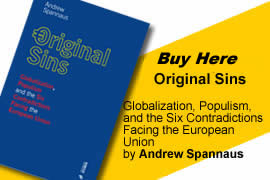L’Agenzia Nuova Cina (Xinhua) ha intervistato Andrew Spannaus di Transatlantico sulla situazione in Medio Oriente, a partire dalle tensioni tra la Turchia e la Russia. Nell’intervista con l’agenzia di stato cinese – condotta dalla giornalista Marzia De Giuli – l’analista americano ha sottolineato la necessità di porre fine alla politica di cambiamento di regime e di lavorare per stabilizzare la situazione, identificando degli interessi comuni tra le grandi potenze e i vari attori nella regione.
by Marzia De Giuli, Ge Chen
ROME, Dec. 16 (Xinhua) — As interest-concerned players are trying to fight against the Islamic State (IS) in Syria, Iraq, Libya and the other hot-spot areas, the key issues will be how to stabilize those war-torn nations for preventing power-taking by terrorists and to give up “regime change” mentality, American strategic analyst Andrew Spannaus said in a recent interview.
After terrorist attacks in Paris on Nov. 13, “the key issue is to stabilize the situation in Syria, working together with Russia and the regional powers involved,” said Spannaus, the founder of Transatlantico newsletter and consulting, an advisory service based in Italy.
The American analyst believes the United States now is focusing on beating IS and the question of Syrian leader Bashar al-Assad’s personal position has become secondary.
This shift, which Spannaus said is underway in the administration of U.S. President Barack Obama, means the abandonment of the “regime change” goals, pursued for years by the neoconservative faction in the United States, has been taken into account by some policymakers.
“The change is being implemented slowly though … The manipulation of terrorist groups for tactical and strategic purposes has become all too common. It is time for these dangerous and counterproductive practices to end,” Spannaus told Xinhua.
After a Turkish F-16 fighter jet shot down a Russian Su-24 on Nov. 24, Spannaus noted that Turkey and the United States are on different sides as regards Russia and the Kurds.
“This contradiction is typical of the difficult transition underway, and indicates the need to define clear goals for the stabilization of Syria, reducing tolerance for the secondary agendas of certain actors,” he said.
“President Obama has decided – correctly, in my view – that an American ground war in Syria and Iraq would be disastrous from two standpoints,” Spannaus said.
First of all, large-scale military occupation of such a territory is out of the question, due to the elevated costs in economic terms and lives; secondly, another war in the region would only feed the narrative of the West waging war on Islam, recruiting even more fighters, he said.
“The key issue is to abandon the regime change policy, that is generally carried out jointly with – and at times even driven by – the former colonial powers Britain and France,” Spannaus stressed.
“The United States can lead a shift away from this orientation, which would be welcome by many other countries. It requires open, honest dialogue with global powers such as Russia and China, and the identification of areas of common interest,” he said.
As the leading candidates for next year’s U.S. presidential election have not shown that they understand or agree with the need for this fundamental shift, “what can be done in the next year will be very important to define the context for the future,” the analyst said.
A potential realignment is underway in the Middle East, he also said, as seen by the agreement on Iran’s nuclear program and the common interest in fighting against IS.
“If the goal is now to seek stability, we need to exploit the obvious convergence of interests among the major powers, and shine light on gray areas such as financing for terrorism and the drug and arms trades,” Spannaus pointed out.
“It is also important (for all players) to consider participation in economic reconstruction efforts for the broader Middle East in the near term. Political agreements are unlikely to be effective without improvement in the living conditions of the region’s population,” he said.
“This will require planning and investment, in particular in infrastructure needs such as water, power and health. The key to future peace is a multilateral economic development plan in the interest of the people of the Middle East, and not considered as only outsiders’ interests,” Spannaus said.
Editor: Mu Xuequan







December 17, 2015
Notizie, Strategia